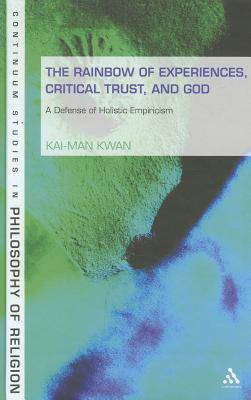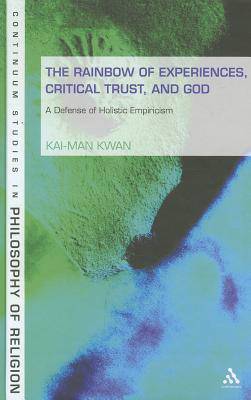
Bedankt voor het vertrouwen het afgelopen jaar! Om jou te bedanken bieden we GRATIS verzending (in België) aan op alles gedurende de hele maand januari.
- Afhalen na 1 uur in een winkel met voorraad
- In januari gratis thuislevering in België
- Ruim aanbod met 7 miljoen producten
Bedankt voor het vertrouwen het afgelopen jaar! Om jou te bedanken bieden we GRATIS verzending (in België) aan op alles gedurende de hele maand januari.
- Afhalen na 1 uur in een winkel met voorraad
- In januari gratis thuislevering in België
- Ruim aanbod met 7 miljoen producten
Zoeken
€ 241,95
+ 483 punten
Uitvoering
Omschrijving
The question of whether religious experience can be trusted has been hotly debated in epistemology and philosophy of religion in recent years. Kwan surveys this contemporary philosophical debate, provides in-depth analysis of the crucial issues, and offer arguments for an affirmative answer to the above question.
Kwan first argues against traditional empiricist epistemologies and defends Swinburne's Principle of Credulity which holds that we should trust our experiences unless there are special considerations to the contrary. The Principle of Credulity is renamed the Principle of Critical Trust to highlight the need for balance between trust and criticism and is used as the foundation for a new approach to epistemology, the Critical Trust Approach (CTA), which maintains an emphasis on experience but attempts to break loose of the straitjacket of traditional empiricism by broadening the evidential base of experience. Kwan then widens his focus by looking at theistic experience in the contemporary multicultural context.The question of whether religious experience can be trusted has been hotly debated in epistemology and philosophy of religion in recent years. Kwan surveys this contemporary philosophical debate, provides in-depth analysis of the crucial issues, and offer arguments for an affirmative answer to the above question. Kwan first argues against traditional empiricist epistemologies and defends Swinburne's Principle of Credulity which holds that we should trust our experiences unless there are special considerations to the contrary. The Principle of Credulity is renamed the Principle of Critical Trust to highlight the need for balance between trust and criticism and is used as the foundation for a new approach to epistemology, the Critical Trust Approach (CTA), which maintains an emphasis on experience but attempts to break loose of the straitjacket of traditional empiricism by broadening the evidential base of experience. Kwan then widens his focus by looking at theistic experience in the contemporary multicultural context.
Specificaties
Betrokkenen
- Auteur(s):
- Uitgeverij:
Inhoud
- Aantal bladzijden:
- 314
- Taal:
- Engels
- Reeks:
- Reeksnummer:
- nr. 3
Eigenschappen
- Productcode (EAN):
- 9781441174017
- Verschijningsdatum:
- 11/08/2011
- Uitvoering:
- Hardcover
- Formaat:
- Genaaid
- Afmetingen:
- 155 mm x 236 mm
- Gewicht:
- 657 g

Alleen bij Standaard Boekhandel
+ 483 punten op je klantenkaart van Standaard Boekhandel
Beoordelingen
We publiceren alleen reviews die voldoen aan de voorwaarden voor reviews. Bekijk onze voorwaarden voor reviews.









